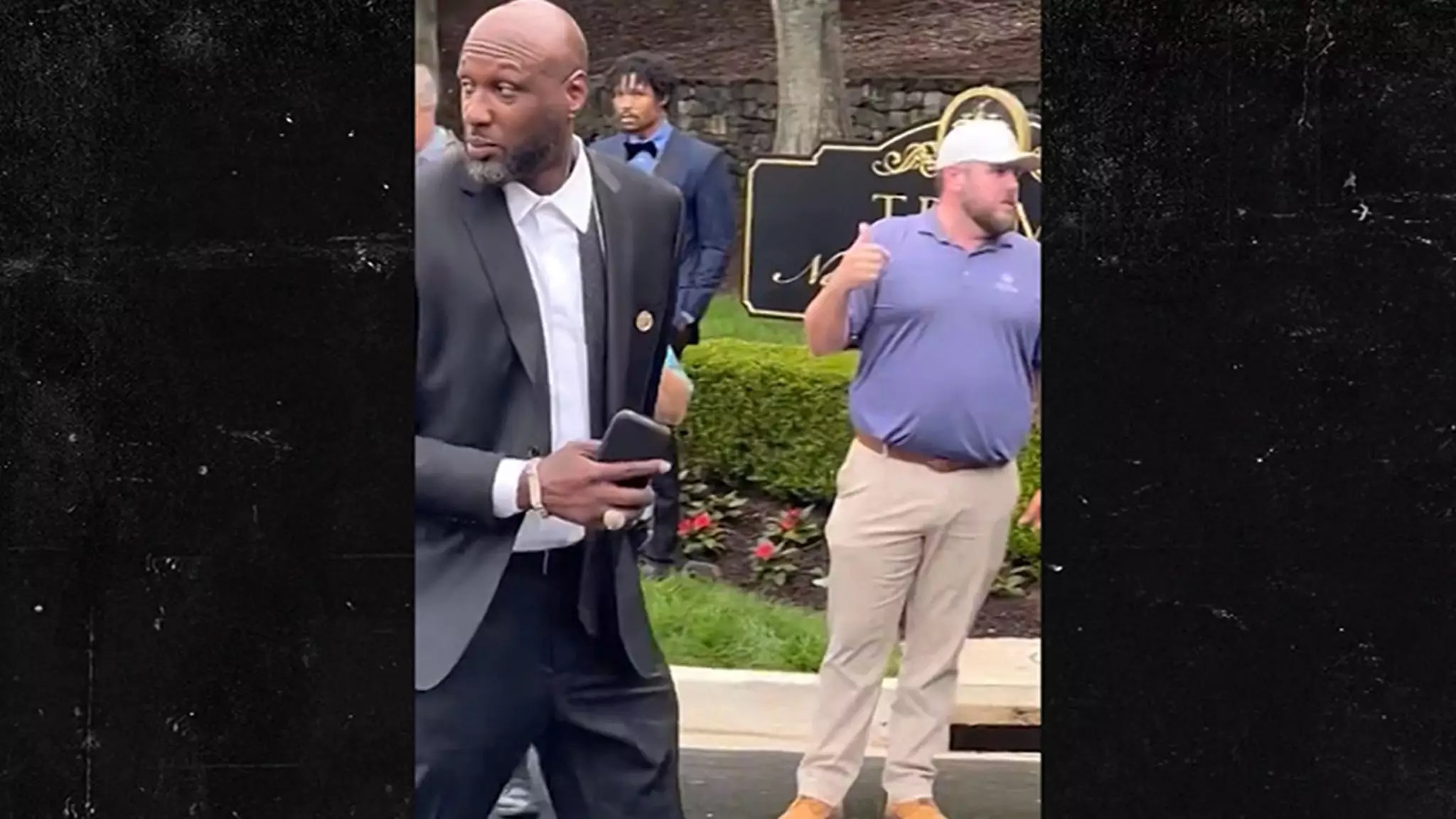The tension of contemporary American politics often seeps into the most unexpected arenas, and Thursday night’s event at the Trump National Golf Club epitomized this reality. Former NBA star Lamar Odom, a man whose journey through fame, struggle, and redemption has captivated many, found himself at the center of a swirling vortex of discontent. As he approached the venue for a gala hosted by Donald Trump, protestors, fueled by passion and anger, unleashed a torrent of booing and jeering. This scene raises intriguing questions about celebrity involvement in politically charged events and the potential societal consequences that follow.
A Reflection of Societal Fractures
The chaotic energy at the golf club was more than simply disappointment directed at Odom’s choice of attendance; it is emblematic of a deeper societal chasm. The protestors’ shouts of “Shame on you, Lamar! You’re better than this,” serve as a microcosm of growing polarizations in American culture. Here stands a celebrated athlete—someone who has overcome significant personal hurdles—at a crossroads of identity and loyalty, embodying the difficulty many feel when confronted with the actions of public figures. Citizens are seeking a moral resonance, and when their heroes appear to sidestep the nuances of political engagement for financial gain or networking, they feel betrayed.
Lamar’s Resilience in the Spotlight
Remarkably unfazed by the hostility, Odom entered the venue not only with poise but with an unmistakable sense of self-confidence. Wearing a sharp black suit, he flashed smiles, suggesting a wisdom that perhaps thrives amidst adversity. His response to the vitriol highlights an essential aspect of his character: the ability to absorb external injustices while maintaining an inner equilibrium. It raises the age-old debate about whether a celebrity’s moral compass should steer their choice of social engagements or if personal agency should prevail unburdened by public expectation.
Cryptocurrency and Political Alliances
Further complicating the narrative is Odom’s promotional pursuits tied to the event. Attendees were required to purchase a significant amount of Trump’s “$TRUMP coin” to gain entry, blending the lines of politics, business, and personal ambition. This intersection can be unsettling, as it underscores the exploitation of political platforms for self-enrichment. The mere fact that the former president arrived via helicopter adds layers to the spectacle, mirroring the extravagant lifestyles that accompany political power and economic influence. One must ponder whether this trend of conflating celebrity with commercial ventures will proliferate in the future political landscape.
Two Sides of the Coin
While some might laud Odom’s ability to brush off public disapproval, others might define this moment as tone-deafness—or worse, complicity. The aftermath of such public events invites introspection not only for the celebrity in question but also for the crowd and society at large. Are we, as observers, too quick to judge based on affiliations rather than the complexities of individual experiences? The juxtaposition of public persona versus the private struggles of figures like Odom challenges our understanding of celebrity culture and activism. In an era where every decision is scrutinized under the lens of public morality, the incident at the Trump gala serves as a poignant reminder of our collective responsibility in navigating this intricate landscape.







Leave a Reply